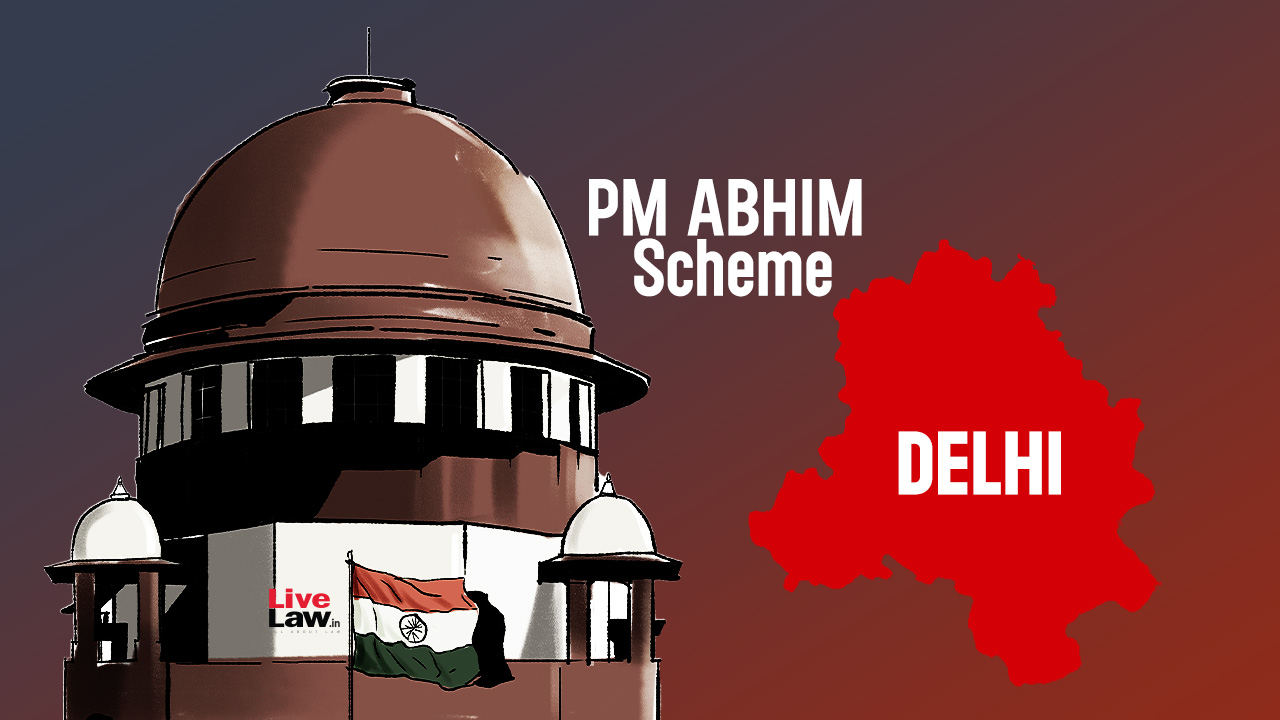 |
|
The Supreme Court of India intervened in a significant legal battle between the Delhi government and the central government, issuing a stay order on a Delhi High Court directive. The High Court had mandated that the Delhi government sign a Memorandum of Understanding (MoU) with the central government by January 5th, 2024, for the implementation of the Pradhan Mantri Ayushman Bharat Health Infrastructure Mission (PM-ABHIM) scheme within the national capital. This decision, however, was met with immediate challenge from the Delhi government, leading to the Supreme Court's intervention. The core of the conflict revolves around the allocation of responsibilities and funding for the PM-ABHIM scheme, highlighting the intricate power dynamics between the central and state governments in India's federal system.
The Delhi government's primary contention lies in the perceived overreach of the High Court's order. Senior Advocate Dr. Abhishek Manu Singhvi argued before the Supreme Court that the central government's authority is limited to the matters explicitly listed in the State List (Entries 1, 2, and 18) of the Indian Constitution, namely public order, police, and land. He contended that the High Court improperly redefined the respective powers of the central and state governments regarding the health sector by directing the signing of the MoU. This argument underscores the critical constitutional aspect of the case, focusing on the balance of power and jurisdictional limits between the central and state governments in healthcare policy implementation. The crux of the argument hinges on the interpretation of the constitution and the extent to which the central government can dictate healthcare policies to state governments.
Further compounding the issue is the financial aspect of the PM-ABHIM scheme's proposed implementation in Delhi. The Delhi government highlighted that while the central government would bear 60% of the capital expenditure (with Delhi contributing 40%), it would shoulder 0% of the running expenditure. This arrangement, according to the Delhi government, is financially unsustainable and potentially detrimental to the long-term viability of the healthcare infrastructure improvements promised by the scheme. The Delhi government also claimed its own healthcare scheme boasts greater reach and coverage than the PM-ABHIM scheme, further strengthening its opposition to the High Court's order. This financial disparity is a crucial point of contention, raising questions about the equitable distribution of resources and the potential strain on Delhi's budget if it were forced to assume the operational costs of a centrally-driven scheme.
The Delhi High Court's original order stemmed from a suo motu Public Interest Litigation (PIL) initiated in 2017, concerning the inadequate availability of ICU beds and ventilator facilities in Delhi's government hospitals. The court's reasoning was that the non-implementation of the PM-ABHIM scheme in Delhi, while 33 other states and union territories had adopted it, was unjustified. The High Court emphasized the need for complete implementation to prevent Delhi residents from being deprived of the scheme's financial and infrastructural benefits. It further stipulated that the MoU must be signed irrespective of any prevailing model code of conduct, emphasizing the importance of the scheme for Delhi's citizens. This highlights the High Court's focus on ensuring access to adequate healthcare for Delhi's population, a point which the Delhi government, while contesting the mode of implementation, does not dispute.
The Supreme Court's decision to stay the High Court order pending a response from the central government represents a significant development in the case. This stay effectively prevents the Delhi government from being compelled to sign the MoU under the existing terms, providing time for a thorough examination of the constitutional and financial arguments raised. The Supreme Court's next steps will be closely watched, as its decision will have important ramifications for the implementation of central government schemes in states, setting a precedent for inter-governmental relations and the allocation of powers in healthcare policy. The ultimate resolution of this case will have far-reaching implications for the future of healthcare infrastructure development in India and the balance of power between the central and state governments.
The case, titled GOVERNMENT OF NCT OF DELHI Versus UNION OF INDIA AND ORS., Diary No. 921-2025, highlights the complexities inherent in the implementation of large-scale national health initiatives within India's federal structure. The ongoing debate underscores the need for a clear and effective mechanism to coordinate healthcare policy and funding between the central and state governments, ensuring both efficient resource allocation and respect for the constitutional rights and responsibilities of each level of governance. The Supreme Court's intervention underscores the vital role of the judiciary in resolving inter-governmental disputes and upholding the principles of federalism in India's democratic framework. The case’s outcome will significantly impact the future of healthcare initiatives in India and the delicate balance of power between the central and state governments.
